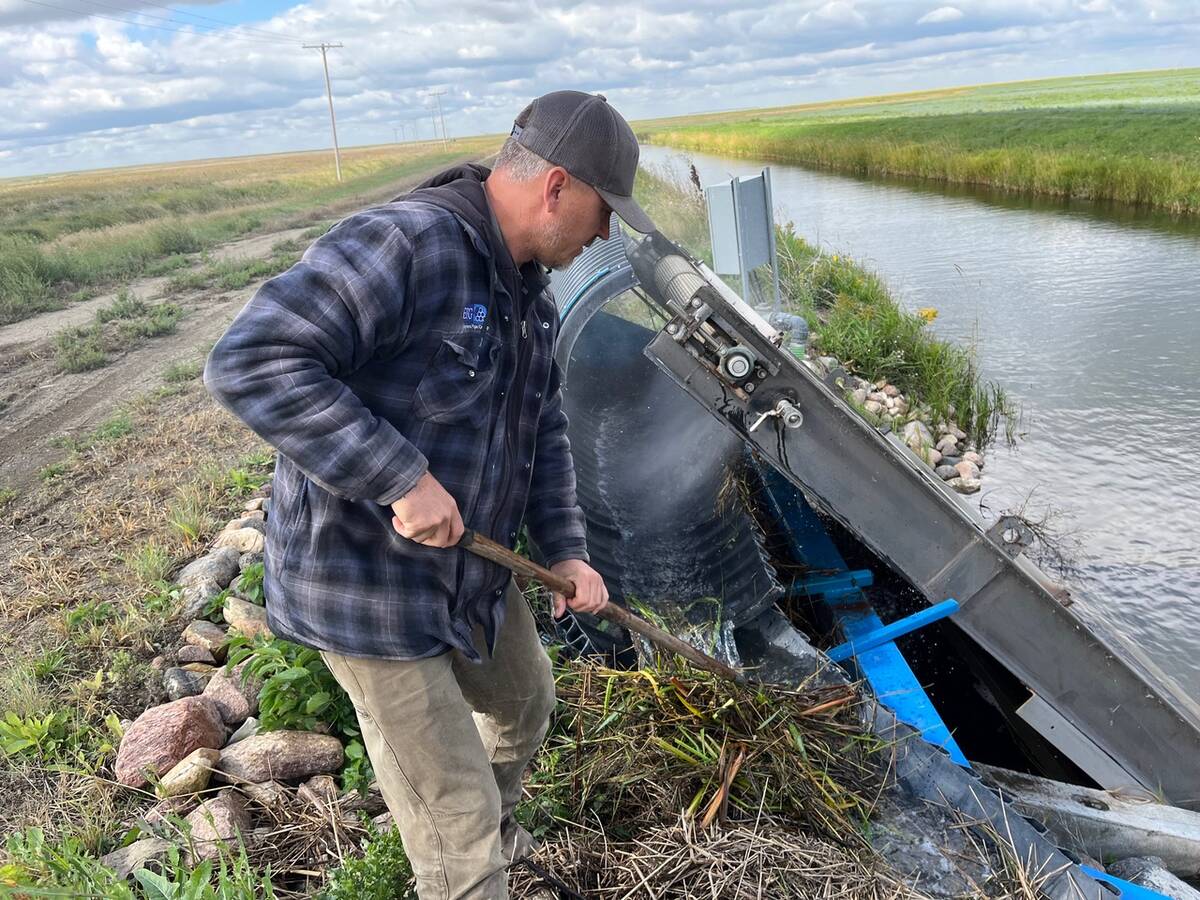Last November the chair of Prairie Pasta Producers was in a celebratory mood after inking a deal allowing his members to invest in America’s third largest pasta company.
It was the first bit of good news for a floundering project besieged by a series of setbacks.
But with the option to purchase shares in Dakota Growers Pasta Co. set to expire at the end of this month, it is apparent that Prairie Pasta is not going to meet the terms and conditions of that deal.
Read Also

Saskatchewan farmer uses tile drainage to manage water
The integration of both irrigation and tile drainage results in higher yields, water efficiency, improved soils and less nutrient runoff, says one producer.
According to the contract, the 200 Canadian durum growers belonging to the new generation co-operative had to buy at least one million of the three million D-series delivery shares offered by Dakota Growers’ shareholders.
That might well have happened if the United States’ commerce department hadn’t slapped a 13.55 percent countervailing and anti-dumping duty on Canadian durum this summer.
Those import taxes have since been revoked by the U.S. International Trade Commission, but the incident soured Prairie Pasta members from investing in a project that involved delivering durum to an American mill.
“It threw a wrench into things,” said Prairie Pasta chair Perry MacKenzie.
So once again it’s back to the drawing board. The dream of a group of Canadian farmers owning their own pasta plant has been further delayed.
“It has always been at our fingertips,” MacKenzie said.
“We’ve never been able to get our hand around it.”
The latest strategy is to poll the co-op’s members to see how many would still be willing to invest in the Dakota Growers venture now that the ITC ruling has re-opened the border to Canadian durum. However, a North Dakota group has appealed the ruling.
If producers indicate they are interested in buying at least one million shares, MacKenzie will ask the North Dakota pasta manufacturer for a one-year extension on the share option.
MacKenzie said Prairie Pasta has to sweeten the pot to convince Dakota Growers shareholders to give it another whirl and is proposing that Canadian growers pay for their shares up front instead of offsetting the cost with grain deliveries.
Shares would be priced at approximately 30 cents, which means if all three million were purchased and divided evenly among the co-op’s members, each grower would pay $4,500. That would give Prairie Pasta control of about one-quarter of Dakota Growers’ D-series shares.
MacKenzie must request an extension before the old option expires Nov. 25.
In the meantime, the group appears to have secured an important ally in Ottawa. MacKenzie and vice-chair Allan Brigden were invited to speak to the Senate agriculture committee about value-added agriculture.
“That’s the first time since I’ve been chairman of Prairie Pasta that we’ve actually had anybody in government ask us, ‘how are you doing? How can we help you achieve your goals?’ ” MacKenzie said.
The committee is conducting a major study of value-added agriculture that will include recommendations on how the federal government can help farmers add profit at the farmgate.
MacKenzie told the committee about various “hurdles” that have continually derailed the project, such as Canadian Wheat Board regulations, securities rules and trade disputes.
“All these hurdles aren’t market driven, they’re all driven by some governmental policy,” he said.
He also pointed out that shares in American new generation co-ops are eligible for low interest rate loans backed by the federal government so farmers do not have to put up additional security to purchase them. There is no such assistance in Canada.
Senators on the committee were intrigued by that disparity. They also said Prairie Pasta is doing exactly what governments are asking Canadian farmers to do and that they would help the co-op in any way they can.

















